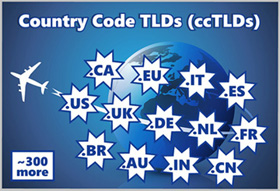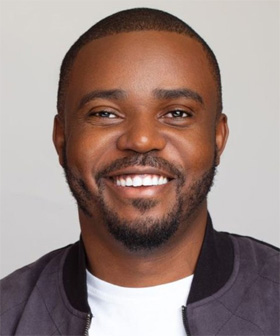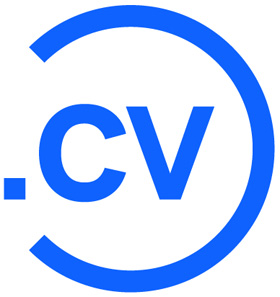|
ICANN will be launching a second
round of new generic Top
Level Domains (gTLDs) next year, a follow up to the original
2012 round that added hundreds of domain extensions to the Internet.
Millions of dollars were spent by entrepreneurs who dreamed of running
their own TLD. That will again be the case in round two, but long before
ICANN launched their new gTLD program there was (and still is) another
way to run an entire extension.
That path, licensing the right to
market and administer an existing TLD, usually a country code
extension (ccTLD), was taken very early on with .cc (Cocos
Islands) and .ws (Samoa) among a handful of ccTLDs that were re-purposed
for general use worldwide. The operators have typically been resourceful
entrepreneurs who cut deals with local governments, promising to expand
use of the nation's ccTLD, thus creating a larger revenue stream
that is shared between the two parties.
As has been the case with many new gTLDs, a
lot of re-purposed ccTLDS have struggled to find an audience. However
others, like .co (Colombia) and .io (British Indian Ocean
Territory), have been solid successes and one - .ai (Angulla) -
has been a phenomenal worldwide hit.
|


|
|
Of course,
a major difference between owning a new TLD and taking the ccTLD
licensing route
is that you own the TLD as opposed to leasing the ccTLD.
Leases commonly run for a 10-year period after which the contract has to be
re-negotiated or could be lost, as happened a few weeks ago when the .co
contract with GoDaddy expired and Team Internet Group took
it over in a new 10-year deal.
|
With so many things factoring into
which route to take, we were happy to have an opportunity
to talk with the Co-Founder of OlaCV Inc., Opeyemi
Awoyemi (Ope),
who just re-launched .cv
after striking a deal with Cape
Verde (a picturesque island nation off the west
coast of Africa) to administer and market that country's
official ccTLD. Getting that deal done didn't happen overnight. Ope spent years
working on a .cv contract deal before finally landing the
conract. So, we set
out to learn more about this persistent entrepreneur and why he
chose this path to running a TLD.
"I’ve been building internet businesses in Africa since my early
20s," Ope, who holds an MBA from Wharton, began.
" I co-founded Jobberman, which became West Africa’s leading job
platform, and also founded WhoGoHost, which is now Nigeria’s largest domain and hosting provider. These experiences gave me a deep appreciation for digital infrastructure, especially the foundational role domains play
in helping people and businesses exist online."
|

Opeyemi
Awoyemi
Co-Founder,
Ola.cv |
|
"The domain business always
fascinated me. It’s quiet but powerful. It is infrastructure that shapes the internet
without always getting the spotlight. So when the opportunity to lead the global rollout of
.cv came up, it felt like a natural evolution. This time, I wasn’t just selling domains; I had the chance to reshape how people use them, especially around personal and professional
identity," Ope said.
|
While Ope could have tried
to win rights to own and operate a new gTLD in
ICANN"s next round, he said the route he took with .cv
was an easy choice to make. "The ICANN route is slow and
expensive," he noted. "Re-purposing a ccTLD like .cv offered
a faster, more entrepreneurial path. I could take something underutilized and give it new life — just like what happened with .co, .me, and .ai. You have speed to market, more control over innovation, and often lower cost to get started. There are cons, obviously. You’d be navigating sovereign interests, and sometimes the technical or administrative infrastructure isn’t modern, so
there’s a lot of behind-the-scenes rebuilding
required."
As for
why he focused specifically on .cv, Ope told us, "It was both timing and
meaning. I’ve always loved the idea of people owning their digital identity and “.cv” naturally means
“curriculum |

|
|
vitae”
in many languages (curriculum
vitae is a Latin term meaning a short account of one's
life, in modern terms - a résumé). That intuitive association with resumes and professional
profiles gave it built-in potential," Ope
explained. "Of course, the opportunity had to be
there too. You don’t get to just “choose” a ccTLD
- you have to earn the trust of a government and show how your vision can align with their interests. When we realized .cv wasn’t being maximized globally and that
Cape Verde was open to partnerships, we went all in. I didn't do this alone, I have the backing of
Bonako based out of
Cape Verde and my co-founder at Ola.cv (the
.cv registry), COO Alex
Garnepudi. |

An
aerial view of of Cape Verde's capital city, Praia (image
from Bigstock)
|
So how did Ope convince Cape
Verde authorities that he was the one who should be entrusted with one of
the nation's most valuable assets? "My pitch was simple"
he said. "Let’s make .cv a source of national pride and economic
value. I showed them how other countries like Tuvalu with .tv and Anguilla with .ai had built meaningful revenue streams from their domains. But beyond that, I emphasized
reputation. This wasn’t about selling cheap domains. It was about building something premium, trusted, and globally
respected. It took over 6 years of relationship building, discussions, legal work, and tech validation. Cape Verde was thoughtful and cautious and rightly so. But once they saw the seriousness of the team, the infrastructure we were putting in place, and the long term plan, they gave us their blessing."
|
Of course .cv still
has a big mountain to climb - the same one that the
operators of any new gTLD or re-purposed ccTLD have to conquer -
reaching a level of recognition and adoption that will make the
enterprise profitable. How does Ope and his team plan to get
there? "We're not just launching another domain extension. We're building an ecosystem around professional
identity" Ope said. "First, we're focused on students, jobseekers, freelancers, and creators and anyone who needs to
stand out online for their personal brand. We’re giving them tools to create sharable profiles, AI powered resumes, and a portfolio on a name they own via
Hello.cv. Think of it as
a modern alternative to LinkedIn, where you own the
URL. Second, we’re treating .cv like a brand. That means partnerships with
job |

Image
from Bigstock |
|
platforms, universities, edtechs, and even fintechs. Our growth loops are built into career moments when someone is applying for a job, graduating, switching careers, those are our moments to shine." |
Another hurdle to clear as a
registry operator is getting the most popular domain registrars to offer
your TLD. Ope has gotten .cv off to good start there. "We’re already live with over 20 registrars, including big players like
Namecheap, Dynadot, Spaceship, NameSilo, 101Domain and
INWX," Ope noted. "We’re working with more to improve visibility and integrate deeper into their onboarding flows. That said, we’re also going
direct-to-user through our platform at hello.cv because we believe there’s a gap in how domain experiences are delivered, especially for individuals.
We’re doing the work to make sure .cv shows up not just on the shelf, but
in the right context - resume builders, job apps, graduation offers, even embedded in educational platforms."
"The deeper mission here is about digital
ownership. I believe that in the next decade, every individual will need a space online that’s truly theirs, not rented from a social platform or buried in someone else’s database. That space should be searchable, secure, brandable, and built for opportunity.
.cv isn’t just about a domain. It’s a tool for mobility, visibility, and
credibility. For every human," Ope concluded.
|





